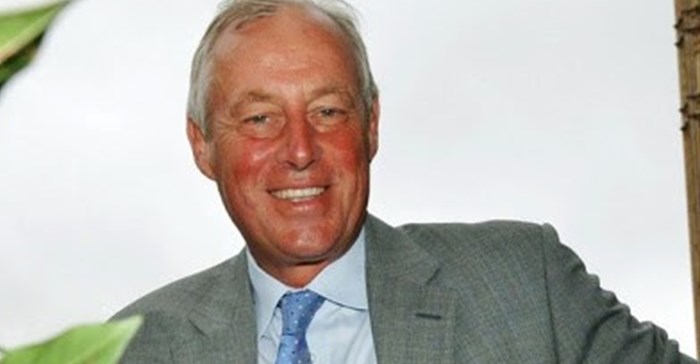
Top stories






More news









Logistics & Transport
Uganda plans new rail link to Tanzania for mineral export boost












Cheaper nuclear energy
Cost is the only significant barrier to the rapid expansion of nuclear power, because it has already proven to be a reliable, clean and secure energy source with a safety record that is among the best in the whole energy sector.
But while fossil fuel prices remain low and the cost of renewables is still falling the need for nuclear to demonstrate that it is cost competitive is as strong as ever. The good news is that cheaper nuclear energy is quickly becoming available.
Within the next 12 months, the first of four new Korean nuclear reactors will start producing electricity in UAE at a price, which will be cost competitive with other forms of electricity generation.
Or consider the case of Rosatom, which is building more latest generation reactors globally than any other vendor. Rosatom appears to have managed to make it to the stage where the learning curve and the economies of scale enable it to enjoy falling costs too.
As for China's Hualong One reactor, which in the UK has just started to go through the rigorous GDA process required by the UK ONR in preparation for being built at Bradwell in UK. Given the size of China's domestic market I wouldn't bet against that design also generating cost competitive electricity before the end of the 2020s.
I'm aware that some of the strongest opponents of nuclear argue that South Africa can't afford the big upfront costs. I don't believe that they have recognised the extent of the fall in the price of nuclear, which the offerings from each of these vendors may well provide for the benefit of SA consumers. What's more these offerings aren't necessarily limited to the technologies available. The accompanying financial packages are also important.
The terms of any loan for nuclear new build projects have a big impact on the eventual cost of the electricity generated. So the question isn't "Can SA afford to invest in nuclear?". It's "Can SA afford not to invest in nuclear?"
This imminent prospect of affordable new nuclear power means that the time for decisions about South Africa's energy infrastructure is now. This economy, blessed with great natural resources and a talented workforce has not fulfilled the high hopes, which accompanied the arrival of democracy in the last few years of the last century. Capital investment has recently lagged all the countries in the region apart from Zimbabwe. And not surprisingly in the last five years, South Africa’s GDP growth has been around half of its neighbours.
The government's National Development Plan has rightly recognised that investment in infrastructure is necessary to support development and should be prioritised. Investment in nuclear will therefore not only guarantee a supply of secure reliable low carbon electricity, it will also give the economy a much needed shot in the arm.
But to capture these benefits this decision must be taken very soon. South Africa can't afford to wait until 2037 for its first new nuclear units come on line.
At a difficult economic time the Integrated Resource Plan for Electricity published last November effectively set back the wider adoption of new nuclear. So I hope the government will now consider the representations from across the energy sector urging revision of the plan to prioritise development of new nuclear.
The deadline for submission of the new nuclear build programme means certainty is needed to facilitate investment and progress. According to the conclusions of the report which New Nuclear Watch Europe (NNWE) commissioned from Trusted Sources, the multiplier effect of investment in nuclear would be 3.4 x the monetary value added would amount to $77bn. That's close to a quarter of South Africa’s current GDP.
By contrast much of the economic benefit of additional investment in renewable energy goes to other countries, mostly in Asia from where the bulk of the components have to be imported.
The consequence of delaying new nuclear build until the late 2030s means slower economic growth, fewer high quality jobs and a less reliable power supply. Furthermore, investment in new nuclear offers South Africa the chance to develop a local supply chain network which in due course will have potential export markets across Africa and further afield.
Skills development in the STEM subjects will grow to meet the demand triggered by the investment in energy infrastructure. The opportunity, which this creates for a new generation of black industrialists who can participate in and lead the building of the power plants and the supply of goods and services to the nuclear industry, is substantial and attractive.
Energy investment decisions cannot be short term. The impact of how South Africa decides in 2017 to meet its future energy needs will be felt right through to the second half of this century. The energy problems which Germany now faces after its mistaken decision to shut down its nuclear fleet in the wake of Fukushima are a testament to the dangers of becoming too reliant on energy sources which are beyond a country's control.
The key to making the right choices for South Africa are to recognise that thinking of SA's energy needs, only in terms of today's demand, or even the next five years’ demand, would be to rob the country of the future it deserves.
Nuclear energy will provide South Africa with a low carbon baseload power source at a predetermined cost that will help transform the entire country. With countries like Nigeria, Kenya and Ghana moving ahead with nuclear ambitions and leading nations like UK, the US, France, China and Canada continuing with their nuclear energy programmes, it's time for South Africa to follow suit or risk being left in the dark.